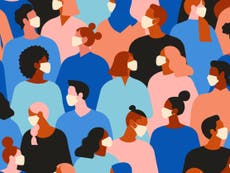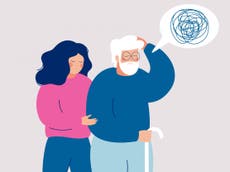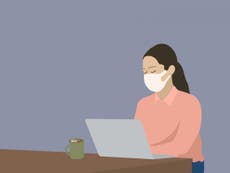As a Black woman, even going jogging feels off-limits now the police have been granted more power
When taking my daily trip outside, I wish I could have complete faith in the idea that they're here for the protection of people of colour

As the country continues to feel the effects of coronavirus across every aspect of our daily lives, messages of social distancing and the importance of people staying at home get more urgent by the day. On Monday, Boris Johnson’s announcement of stronger restrictions on leaving the house reached new heights. Police officers would now have the power to enforce social distancing rules by means including, but not limited to, “fines and dispersing gatherings”.
With social media still displaying disappointing photos of people meeting in parks, and having extended family parties as recently as last weekend, a clear, strict message about limiting contact with people outside of your household was definitely required to protect our safety.
But despite my understanding of the genuine need for getting people to stay at home, upon hearing news of increased police powers, I couldn’t help but feel an immediate pang of fear at the prospect of the streets being patrolled by police with potentially unlimited abilities to control the public.
Though I’ve been running a few times a week to keep mentally and physically healthy in these uncertain times, ever since Johnson’s announcement I haven’t felt nearly as keen to go.
“What if a police officer sees me on the road, decides I’m making a non-essential trip and tackles me to the ground?” I jokingly asked my friends in a WhatsApp message this week. Though meant in jest, it actually exposed my fundamental discomfort with the presence of police, stemming from its long history of institutional racism
The Macpherson Report, published in 1999 following the murder of Stephen Lawrence in 1993, named the Metropolitan Police as “institutionally racist”. More than 20 years after the inquiry, not enough has been done to turn this conclusion around; black men continue to be overpoliced, with disproportionate stop and search figures as well as the demographics of those in the prison system standing as proof. While the Met Police Commissioner Cressida Dick may claim that they’ve “completely transformed” since the report, as she did in 2019, plenty of black and minority ethnic people who find themselves as regular targets would disagree, as well as people of colour within the force themselves.
As a black woman, I’m nervous for what this ingrained bias, plus new backing to enforce rules as they see fit, will mean for me when I go on a run in the morning. What if I stop for a minute, to catch my breath halfway through? Or what might this mean for my brother walking to his job that can’t be done from home? How can I feel safe in the knowledge that police will be fair in their enforcement of distancing rules?
“Some of us nerdy cops feel like kids at Christmas when there’s new legislation to play with” reads a now-deleted Tweet from Cann Hall policing team in Waltham Forest – not exactly comforting words. After the message was reposted by horrified Twitter users, with one deeming the words “disgusting”, Cann Hall policing team admitted that the Tweet “should have never been sent” and that an internal investigation will be conducted. And though likely intended as a joke, these additional opportunities to “play around” with their authority is nothing to giggle at. Ingrained racism, plus a hyped-up sense of new power does not make for a feeling of confidence at a time where there’s already so little. And that goes for other services too.
Kayla Williams was a 36-year-old mother of three who died of suspected Covid-19 infection at her Peckham flat last Saturday. Despite having symptoms consistent with the virus, her husband Fabian Williams told The Guardian that the paramedic who had visited the home the day before her death said that the hospital wouldn't take her and that she was “not a priority”. Even when suffering from severe pain, this black woman was not deemed important enough to be taken seriously and the end result was her death. Clearly, multiple public institutions have a deeply rooted issue with seeing black people as worthy of believing – and at a time of a global pandemic, it's devastating to witness institutional racism still fully active, and still resulting with harming those it should be protecting.
In the space of a few weeks, people are suddenly having to worry more about bills, rent and mortgage payments, and finding essential groceries to feed themselves or their families. With this announcement, for some, there’s now added anxiety about whether a legitimately authorised trip outside of the house could possibly result in an unfair or violent penalty. This isn’t a case of unfounded paranoia, nor something that can be waved away as making a fuss when there’s no need for one. Giving police further abilities to discipline as they see fit is a genuine worry as long as racial bias runs deeply throughout the force.
There is a real need to ensure that people follow the rules of social distancing, and the more that people adhere to this, the sooner the rate of the spread of coronavirus can slow down, saving more lives. Yet, when taking my sole but necessary trip outside per day, I wish I could have complete faith in the idea that police officers are figures in place to help me. Sadly, not enough has been done to give me the sense of security that their presence may give others.






Join our commenting forum
Join thought-provoking conversations, follow other Independent readers and see their replies